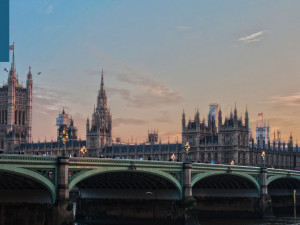
BoE set to raise inflation guidance
Morning mid-market rates – The majors
3rd February: Highlights
- Levelling up; Johnson’s quick fix answer
- Job losses in the Private Sector will not derail the Fed
- Preliminary inflation data places more pressure on Lagarde
Bailey may regret no change decision in November
Johnson faced another fiery Prime Minister’s Questions in Parliament yesterday but appears to be weathering the storm with tenacity.
Policy investigations into several events held in Downing Street are ongoing, and the full version of Sue Gray’s report is yet to be seen, but it is now possible that this story may now be overtaken by the next drama with the Prime Minister injured but not fatally so.
To move on from Partygate, the Minister for Levelling up, Michael Gove, announced the release of the Government’s plans to ensure investment is more evenly distributed.
A cynic would no doubt agree that the best way to move on from a scandal is to make promises of greater investment
The Government favours the mayoral model for local government and plans to invest in areas that apply for funding who have also adopted it.
The Opposition, naturally, criticized the plans announced yesterday for not going far enough, and lacking ambition. Since amendments announced late last year to the plans for the HS2 high speed rail link, the Government has been keen to make good its manifesto pledges to divest power from London to the North of England.
Today’s by-election in the constituency of murdered MP Davis Amess will not be a litmus test for Government support since as a mark of respect, the main opposition parties won’t be fielding candidates.
This means that the Government will have to wait until the local Government elections in May to be able to gauge public reaction to the recent scandal(s).
A spokesperson for the Confederation of British Industry warned yesterday that the country faces entering a period of low growth unless investment in business increases dramatically. TH pandemic has hit inward investment hard, and it may be some time before it returns to pre-Covid levels.
The Bank of England’s Monetary Policy committee meets today with analysts and commentators almost certain that there will be another twenty-five-basis point increase in official interest rates.
The short-term fate of Sterling depends on today’s decision. The balance of risks is clearly to the upside for the pound. A hike today would see it consolidate its recent gains with the possibility of seeing further traction towards the 1.3640 level versus the dollar.
Yesterday, it made a high of 1.3587, closing at 1.3571.
Considering your next transfer? Log in to compare live quotes today.
Omicron still a major factor in employment
The news that the economy shed 301k jobs in the private sector versus a downwardly revised total of 776k in December added to concerns about tomorrow’s January Employment report.
The market had predicted an increase of a little over 200k, so this outcome was a major surprise.
Expectations for tomorrow’s headline non-farm payrolls have gradually reduced as contributing data has been weaker than expected. The average expectation is now for 150k new jobs to have been created.
There is a degree of confusion over the strength of the economy now with hawks declaring that the Fed’s decisions on withdrawal of additional support for the economy should have been made sooner and criticism of Jerome Powell for not taking rising inflation seriously enough continues.
The most common theme surrounds the feeling that the longer inflation is allowed to rise with no action being taken, the time it will take to be brought under control rises exponentially.
There is still a view that at its meeting next month, the FOMC will hike the Fed Funds Rate by fifty basis points. This would certainly see the Fed figuratively pressing hard on the brakes, contrary to the view being expressed by Regional Fed Presidents.
The fall in the ADP jobs data appears to have been caused by a perfect storm of negative factors.
The negative effect of childcare issues and school closures combined with business closures, and issues in the hospitality and leisure sectors were primary causes.
A representative of ADP described the data as a speed bump, not a stop sign. Nevertheless, concerns about the growing balance of risks for the NFP data are now firmly skewed to the downside.
Yesterday, the dollar index continued its recent correction. It fell to a low of 95.79 and closed at 95.98.
Holding back the tide of inflation proving impossible
Pivotal could certainly be used to describe the outcome of today’s ECB interest rate decision.
While it is almost certain that the Governing Council will vote to leave interest rates on hold, there are bound to be passionate demands made for the amount of support being pumped into the economy be substantially reduced.
The new President of the Bundesbank Joachim Nagel is sure to lead demands for the Central Bank’s focus to be recalibrated to tackle inflation.
Price rises in individual states across the Eurozone are now all above the ECB’s target ranging from 2.8% to 9.5%, with the average (for what it is worth) close to 5%.
It has now almost become a badge of honour for ECB president Christine Lagarde to continue to provide support for weaker economies, despite her promise that inflation is m=being closely monitored.
Discussion today will centre around the level of support that will be left in place when the current round of PEPP expires next month.
Lagarde wants remaining support to be sufficient that there is no major shock to the government bond markets that would happen if the ECB were not to be major buyers.
Restrictions on the level of Government borrowing were suspended recently for a third year, and this will take a long time to be brought back to what the Eurogroup describes as acceptable levels. The pace of the reduction in support as the recovery solidifies will also vary from nation to nation.
There remains a concern among the more dovish countries, that turning off the tap will lead to a dramatic fall in Government spending and investment that will be a reminder of the aftermath of the financial crisis.
Today’s meeting will indeed be pivotal, with the market poised to take advantage of the euro’s recent climb to reinstate short positions.
Yesterday, the single currency rose to a high of 1.1330 and closed at 1.1305.

About Alan Hill
Alan has been involved in the FX market for more than 25 years and brings a wealth of experience to his content. His knowledge has been gained while trading through some of the most volatile periods of recent history. His commentary relies on an understanding of past events and how they will affect future market performance.”



